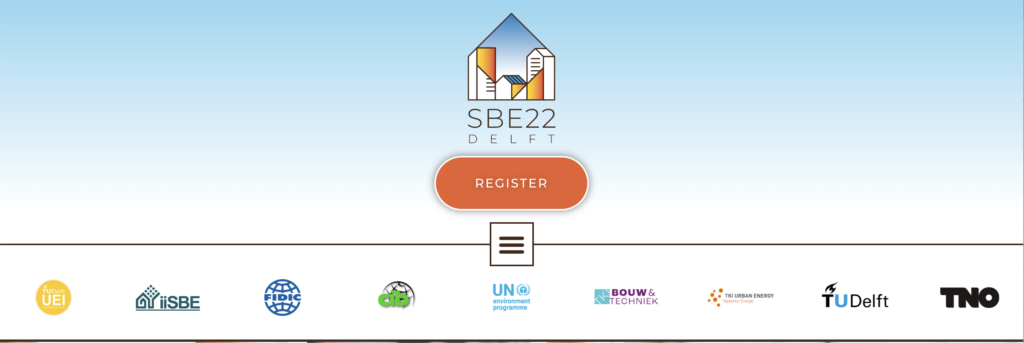Roberta Di Bari, Researcher and Project manager at Cultural-E partner University of Stuttgart, will present the project at the SBE22 Delft, a conference for researchers, government officials, companies and professionals working in the energy renovation sector.
Her presentation will be held during the “Paper presentations: Circularity and & lifecycle analysis” on 12 October 2022 from 15:15 to 17:30 CET.
To know more about the presentation, read the abstract below:
The situation reported from the Global Status Report 2021 and the now war-related risks urge the application of measures for decreasing emissions and energy consumption, aiming carbon neutrality by 2050. Smart solutions for decreasing energy consumption are researched and implemented in the context of energy efficient buildings and Plus Energy Houses (PEHs). As PEHs gained an increasing consideration for the challenge of energy consumption reduction, their design produced a multitude of solutions. In such a multitude, an optimum is defined by accounting and comparing the performance offered by provided technologies and the actual technical requirements. The latter can be affected by the geographical/climate context as well as the user behaviour and socio-cultural aspects. This objective has been addressed in the CULTURAL-E research framework. Furthermore, in compliance with the current climate targets, this framework attributes a central role to the environmental performance of systems designed for PEHs. In this work, environmental impacts’ investigations of solution sets for PEHs are provided according to the Life Cycle Assessment (LCA) methodology. The developed bottom-up approach provides lifecycle information hierarchically on three levels (component, solution sets and PEH), while information of operation energy is derived through building energy simulations and average user-related energy usage. The selected 8 case studies are drawn from the CULTURAL-E research and include solution sets tailored for climate and socio-cultural clusters. Innovative technological components as well as conventional technologies are included. Based on such analyses, an environmental (CO2) payback periods have been estimated, i.e., the time required to recoup the total expended embodied CO2 through building operation carbon positivity. Results identified potentials for climate mitigation and different performance levels of the implemented technologies and photovoltaics systems, especially for countries in which a faster shift to renewable energy sources is needed for meeting the 2050’s environmental targets.
The SBE22 Delft conference is organized and hosted by TU Delft and TNO, with the support of BTIC and the TU Delft Urban Energy Institute, as part of the SBE series.
Registration and agenda of the conference can be found here.


